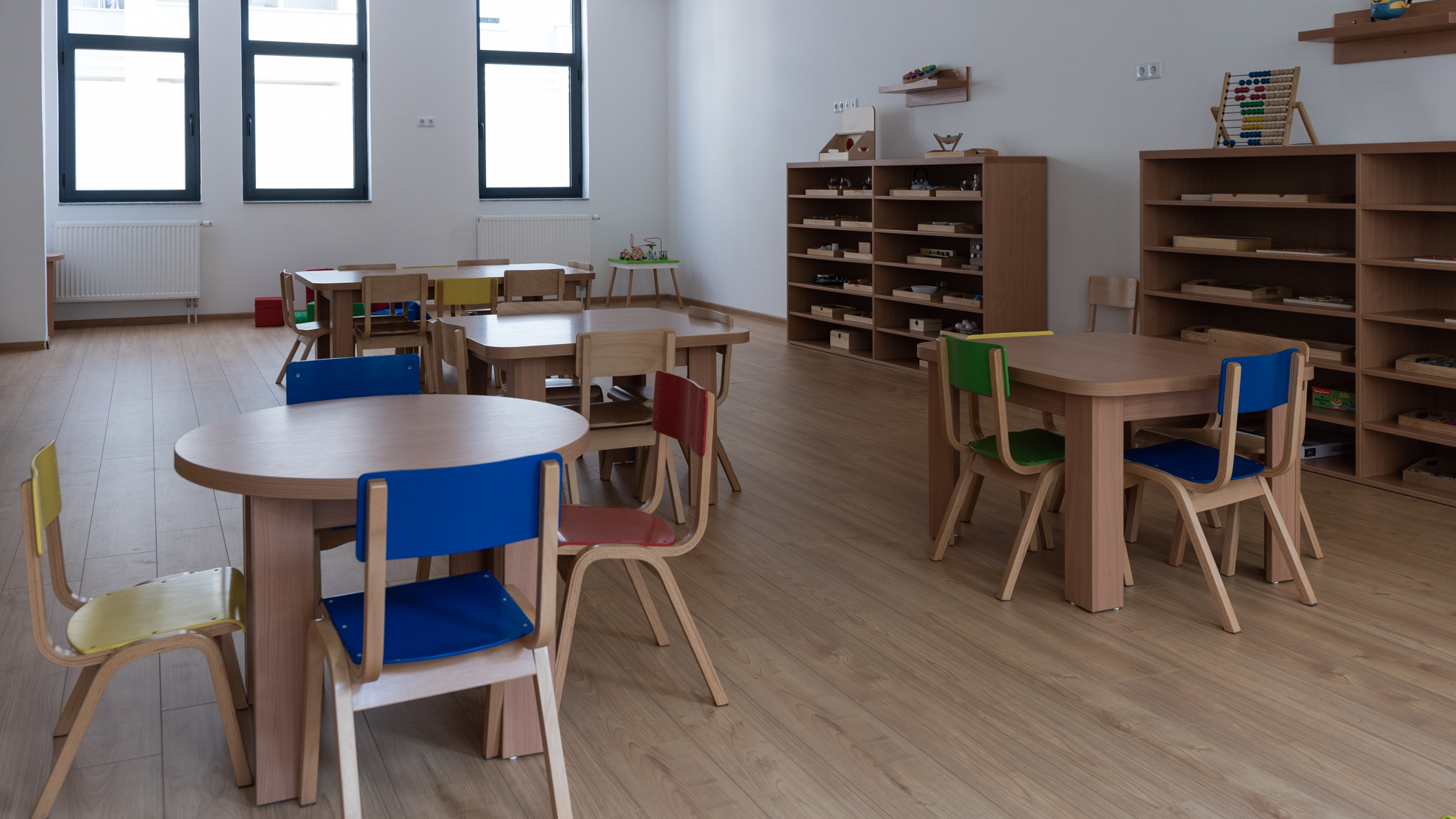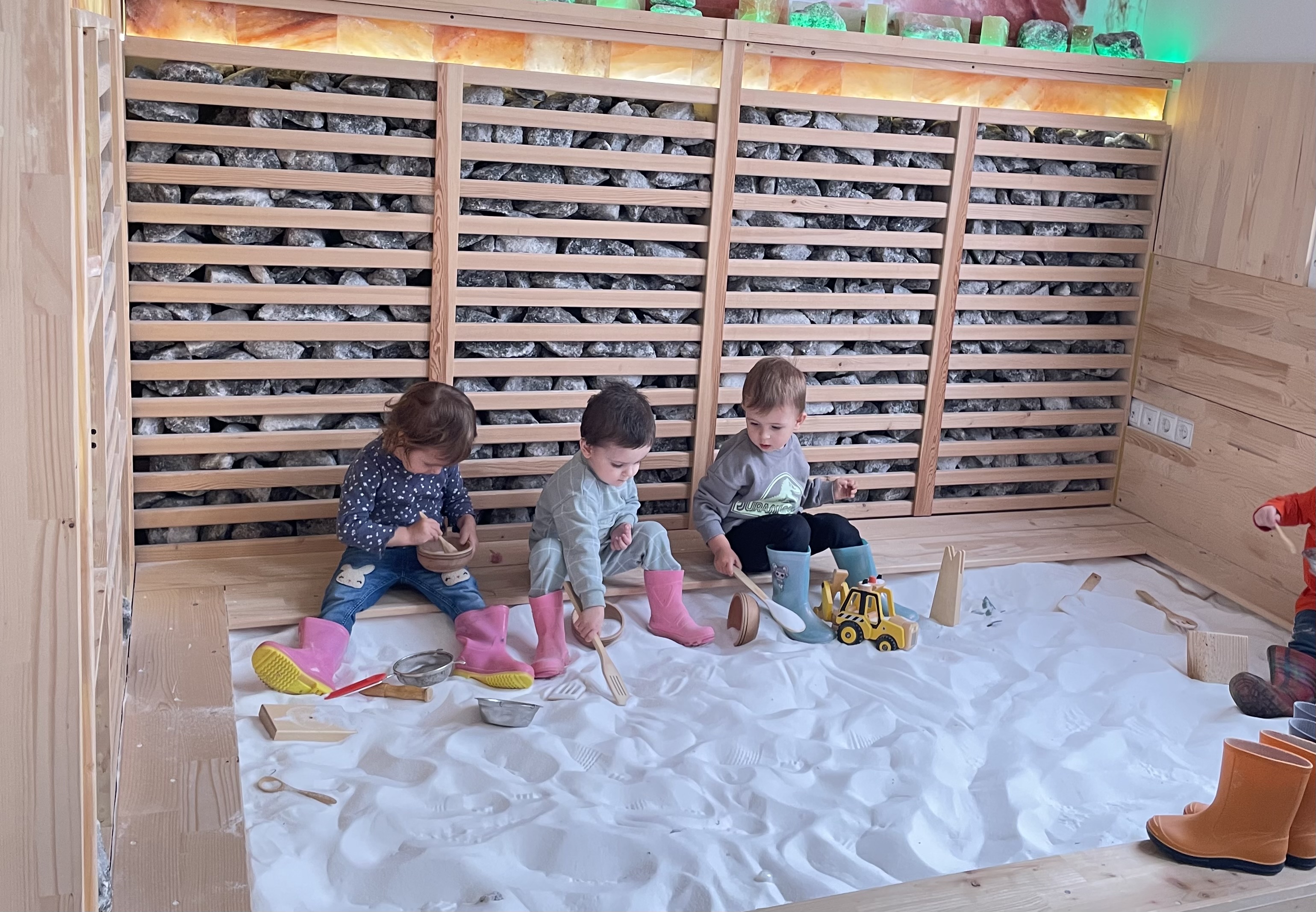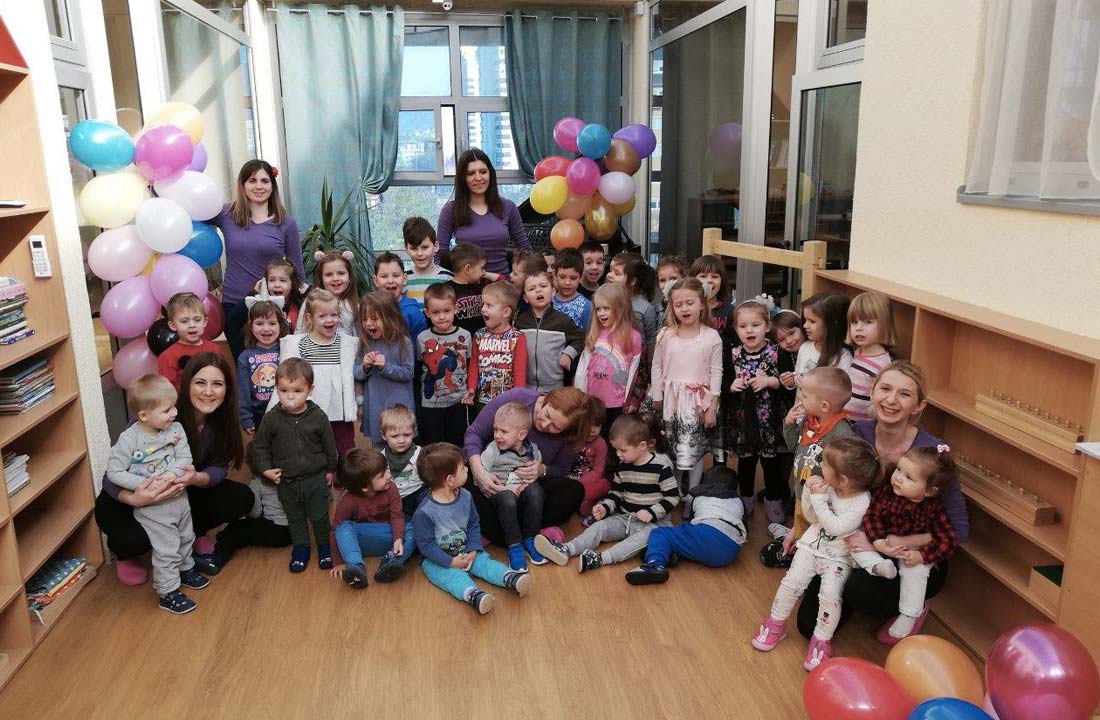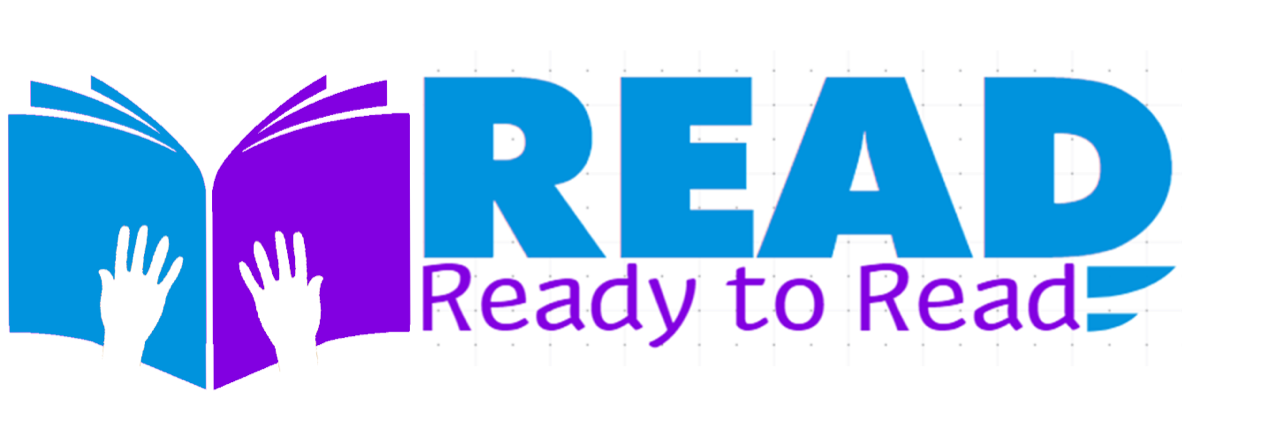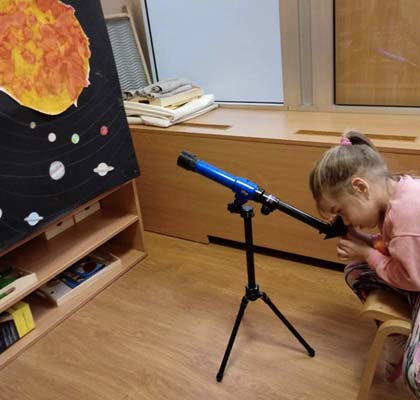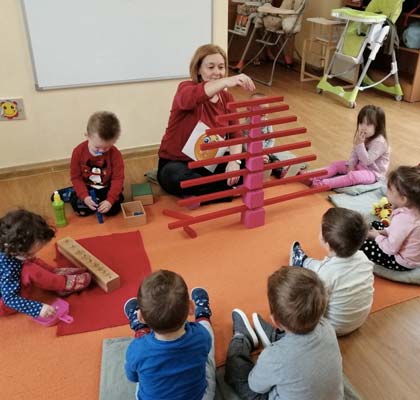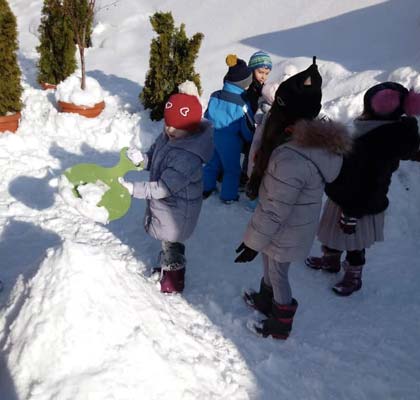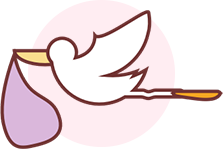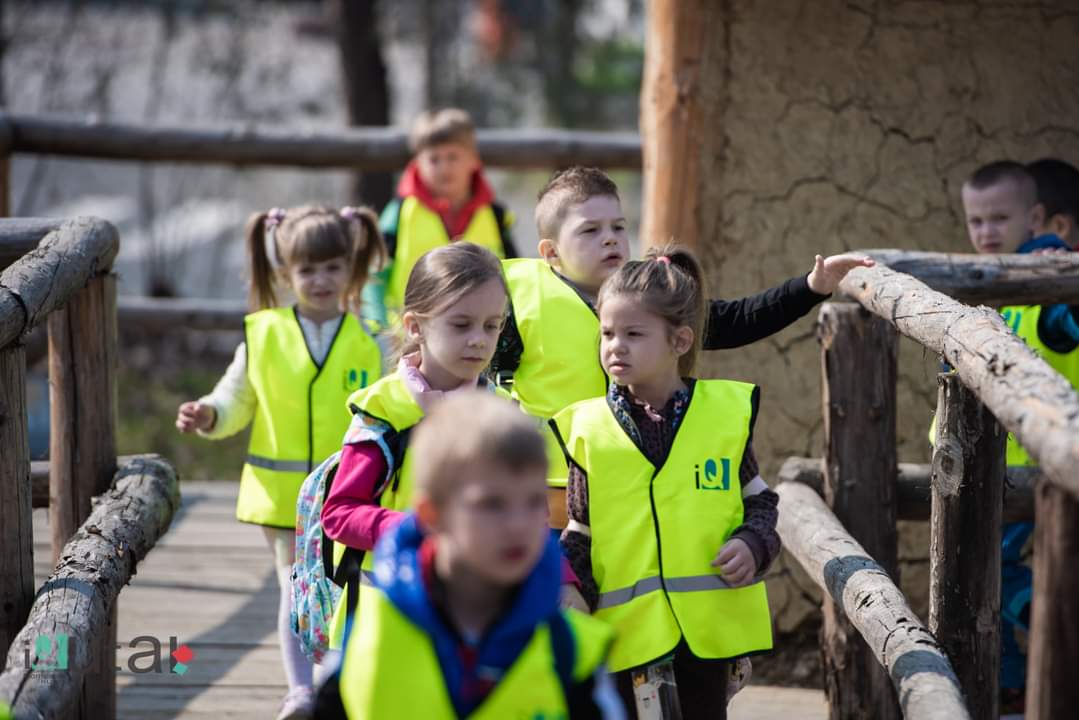
WHY THE MONTESSORI IQ CORNER?
Maria Montessori was born in Italy in 1870. She was the first woman in Italy to graduate from the medical school and become a physician. After a short experience in the medical field, she dedicated her work to pedagogy until her death in 1952. She is the creator of the Montessori Method.
The traditional approaches of pre-school institutions, where the transfer of knowledge is solely understood as a one-way process; teacher-to-child. Unlike that, the Montessori Method implies an approach directed to the child, where the teacher has a role of a facilitator or a consultant. It is based on individual approach to each child, with the aim to stimulate the processes of self-forming or self-education.
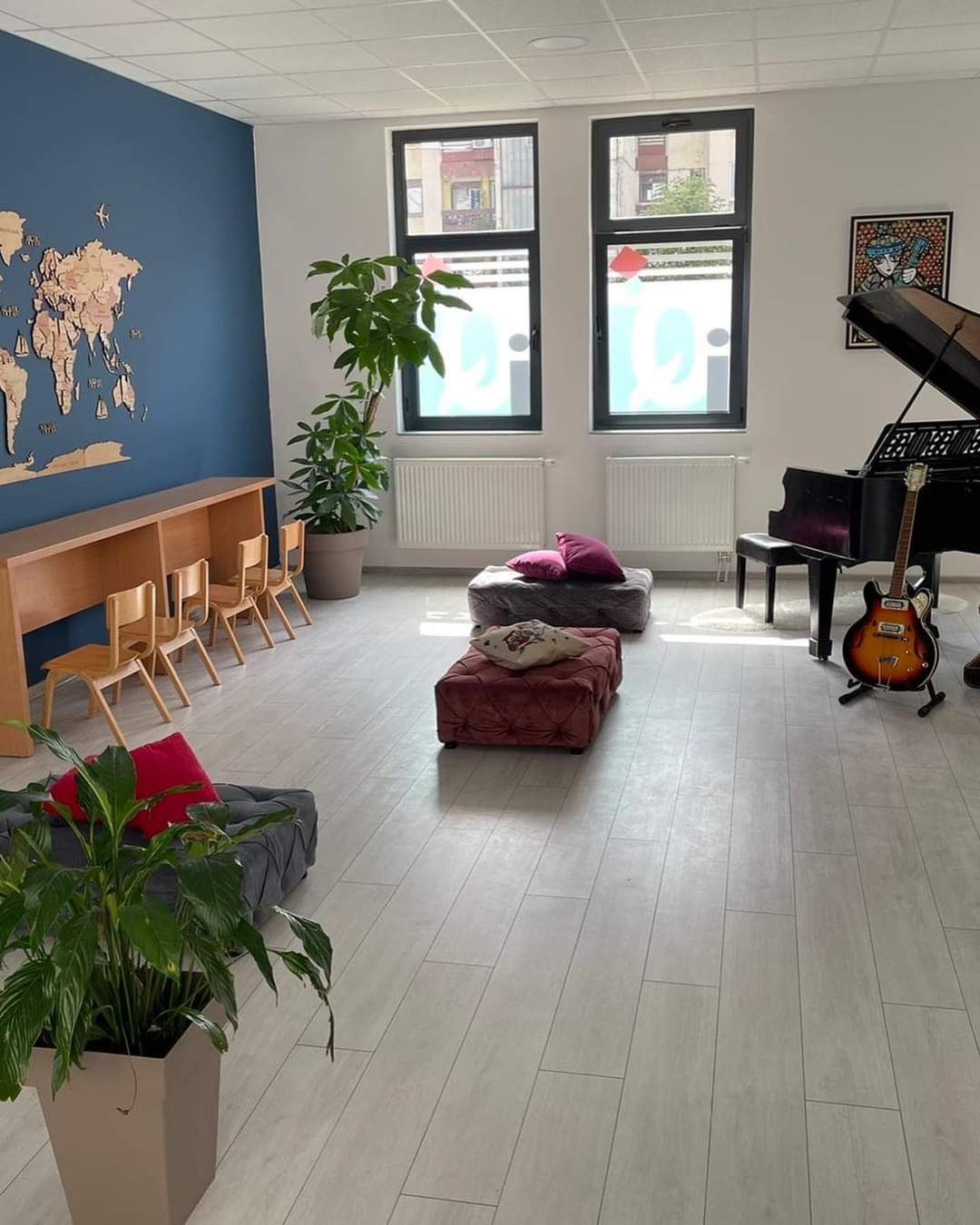
MISSION AND VISION
The mission of the Private Pre-school Institution Montessori IQ Corner is to become an institution to raise children to be able to face the reality of our life today, using the Montessori method where “love is not a dependence, and discipline is not subordination”.
The vision of a kindergarten is to become the centre of excellence for the Montessori method in Tuzla and Tuzla Canton, as an example of life in the wider community.
Working Hours
The truth about life is safe as gravity: to live completely, we must learn to use things and love people .... not to love things and use people
News
-
READ (ERASMUS+ PROJECT)
Fostering of literacy competences plays a key role in promoting social cohesion and reducing economic and social disparities. Quality ECE lays the foundations for later success in life in terms of education, well-being, employability, and social integration, and is especially
-
Projekat STEAM+ (STEAM Skills Development in Early Childhood Education and Care in Europe)
The overall objective of the STEAM+ 2020 project is to improve children’s education by creating an innovative approach that integrates the academic knowledge in the field of STEAM skills with the ECEC practices in order to develop the creative and
-
POTPIŠITE PETICIJU: I JA IMAM PRAVO NA VRTIĆ!
I dok na nivou EU obuhvat djece predškolskim odgojem iznosi 93% i stalno se povećava, u Bosni i Hercegovini on iznosi 5,3% i prilično je stabilan posljednje tri decenije. Financijske prepreke su jedan od glavnih razloga zašto mnoga djeca




